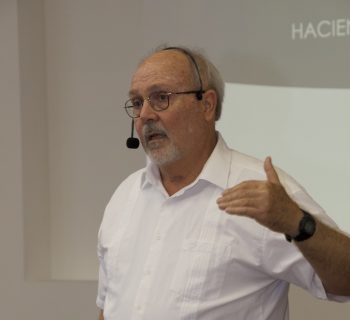By: Kate Bent and Jessica Bustos ~ Coast Report Online ~ May 18, 2020
The CARES Act has left some of the most vulnerable students at Orange Coast College to fend for themselves. Undocumented and international students have received limited to no aid since the pandemic started due to restrictions on how the funds may be allocated.
Mextli Lopez, the undocumented scholar specialist in the Student Equity Office, said undocumented students are entitled to benefits available to all OCC students but were left out of the $1.8 trillion stimulus package.
According to Lopez, a campus-specific relief fund gathered through donations to the OCC Foundation had 300 scholarships available and were given out within five minutes of the funds being available.
She added that the inability for them to access federal funding has been difficult for undocumented students.
“It's devastating to undocumented students and their families because they're also workers, so they're also contributing to our economy. Now during this pandemic all of the lifelines that are being offered to everybody else, they're being excluded from,” Lopez said.
Under the public charge rule, only those who qualify for federal funds will receive benefits from the stimulus.
Lopez said she often directs students to consult an immigration attorney to find any and all resources and options on their path to citizenship.
According to immigration attorney George Ganey, students might be unaware of funding they qualify for.
“There’s no hard and fast rule about what you should and shouldn’t apply for,” Ganey said.
Armando Vazquez-Ramos, a retired Chicano and Latinos Studies professor from Cal State Long Beach and president of the California-Mexico Studies Center, said the rationale behind the move by the Trump Administration is racism and only adds to challenges faced by undocumented students.
“This decision is [terrible] because it’s like pouring salt into the wound. I mean, these are students. These are young people that have the same needs. They’re suffering the same sacrifices all students are having to make this semester,” Vazquez-Ramos said.
He went on to describe the state of fear many undocumented students are currently living with.
“But I think that fundamentally everyone is under very high stress caused generally by fear, but also, now the fear of the pandemic affecting their family, affecting their loved ones, when in many cases they know they will not have access. Even though it has been promised that everyone will have access to medication and testing, deep inside, everyone is concerned about what if I get deported,” Vazquez-Ramos said.
International and Deferred Action for Childhood Arrivals students have also been excluded from receiving federal stimulus checks.
Ke Lu Si Mai, a 26-year-old bible studies major who attends Bethesda University, is an international student from Taiwan.
His status as an F-1 student has left him excluded from receiving federal emergency aid along with restricting him from leaving or re-entering the country.
“I don’t really have any resources that are available to me,” he said.
According to California Community Colleges Chancellor Eloy Ortiz Oakley, the lack of flexibility for the allocation of resources has left the him concerned about the interpretation of the CARES Act funding.
“We feel it was arbitrary because we feel that it narrowed the scope in which students were eligible unnecessarily,” Oakley said in a teleconference last week.
The California Community Colleges filed a lawsuit on behalf of students and is currently waiting on a ruling they hope will be against the Department of Education and Secretary Betsy Devos. The suit asks for restrictions on relief aid to be lifted.
Meanwhile, Oakley advised colleges that have begun to issue the federal relief aid to temporarily hold back dispersing funds until a decision in the suit is reached.
Si Mai was optimistic that the pending lawsuit against the Department of Education and Secretary Devos will reverse his ineligibility.
“I believe that will help me greatly,” he said about the possibility of receiving aid.
On campus, resources are still available to all students regardless of their status, Lopez said.
This includes the Student Health Center, counseling, and a state funded financial aid application similar to FAFSA.
According to the state of California website Gov. Gavin Newsom has implemented a $125 million fund that will provide relief for undocumented households.
However, Oakley said they are still trying to work out the details of how that funding may reach students.
“It is a drop in the bucket compared to the need that exists,” he said.
Vazquez-Ramos and Ganey both spoke of the strength and resilience of the undocumented community.
“I think more than anything this particular student population is resilient but fragile. It’s a very determined but also insecure population and the fear factor is effecting them in different ways,” Vazquez-Ramos said.
Ganey echoed Vazquez-Ramos comments.
“It takes a lot of character and grit — the people who are able to do that [immigrate] they are tough,” Ganey said.
Source: Kate Bent and Jessica Bustos ~ Coast Report Online ~ May 18, 2020







